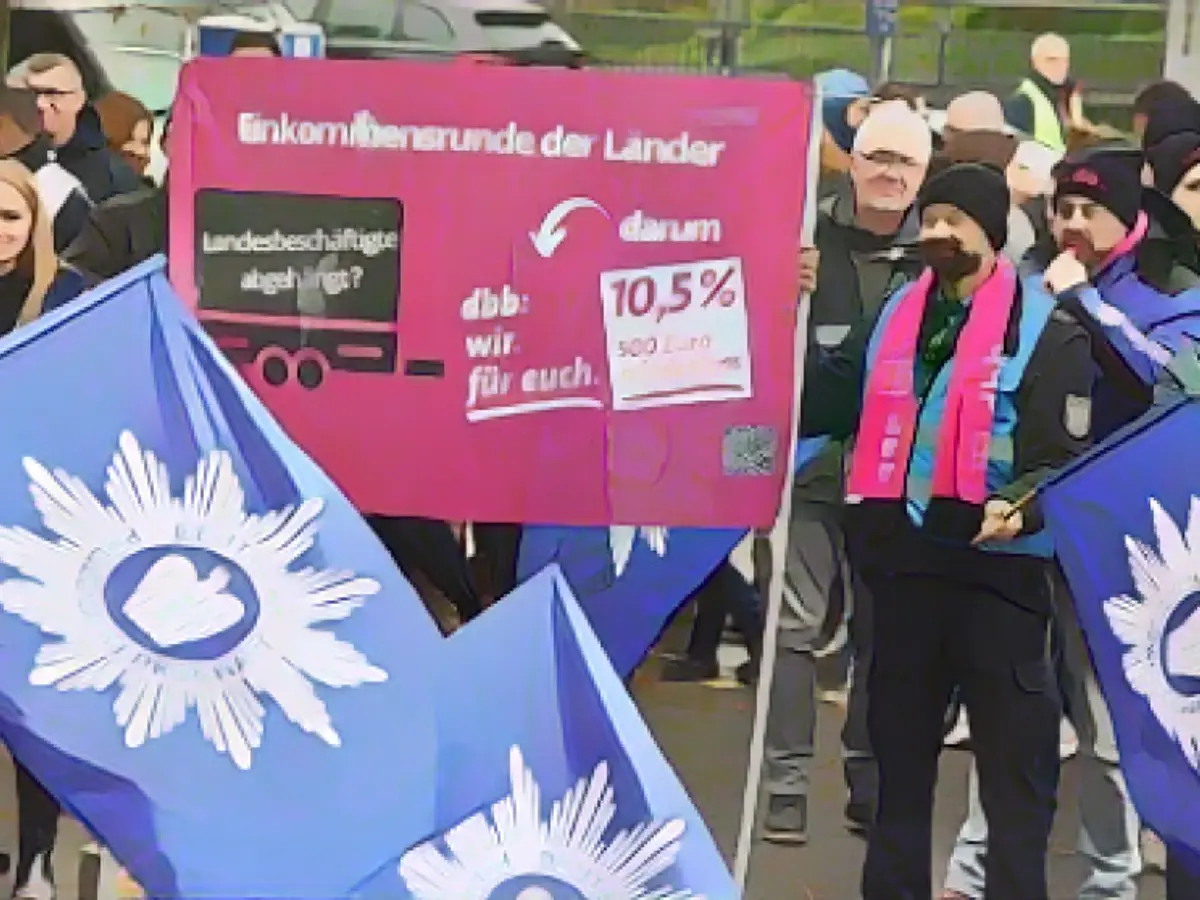Stuttgart's Work Stoppage Wave
The city of Stuttgart is experiencing a stirring uproar as a tide of work stoppages encroaches upon Baden-Württemberg. The railways have halted, city employees have left their posts, retail sector protests erupted, and pharmacies have shuttered their doors. To add to the chaos, the police are now joining the fray in a planned protest next Thursday, albeit with potential challenges if civil servants take over their duties.
Legally, police officers cannot walk off the job, but the German Police Union (DPolG) is advocating for a 10.5% pay raise, with at least €500 extra per month for its 4000 union members, among whom are lab technicians, cyber specialists, forensic experts, and support staff. As Ralf Kusterer of the DPoIG explained, even a typist involved in the interrogation of pedophiles is part of the force.
As the strike wave continues to disorganize Baden-Württemberg, even the police are joining the cause, further complicating matters. However, the DPolG strike next Thursday is illegal for the police, leading to potential complications if their duties must be taken over by civil servants.
Why the Strike?
The German Police Union's planned strike, despite the legislation barring police officers from participating in strikes, stems from a myriad of factors in the broader context of labor actions and societal tensions in Germany.
- Labor Struggles and Union Unity: The DPolG strike is a show of solidarity with other unions, especially those involved in the ongoing public sector strikes in Baden-Württemberg. This solidarity underscores recent labor union demonstrations and strikes, such as the one in Munich where a car plowed into a labor union rally, injuring several people, even children[1][3][5].
- Migration and Immigration: Tensions surrounding migration and asylum policies have arisen after a string of immigrant-related attacks, most notably the car ramming incident in Munich. These events have driven demands for stricter migration policies, which may impact the existing asylum system and the rights of asylum seekers[1][3].
- Political Pressure and Elections: The timing of the planned strike coincides with the upcoming German election. Some believe it is a political statement aimed at swaying public opinion, especially among conservative and far-right parties advocating for stricter migration policies[1][3].
Consequences
- Legal Ramifications: Police officers' participation in the strike is illegal under German law, carrying potential consequences such as disciplinary action, fines, or dismissal[2].
- Social Dynamics: The strike could intensify social tensions, particularly in regions like Bavaria that have previously experienced violent incidents involving immigrants. This could further fuel public discourse on migration and asylum policies, potentially impacting the election results[1][3].
- Labor Movement: The police union's solidarity with other labor unions could fortify Germany's overall labor movement. However, it may also escalate conflicts with the government, which could respond with stricter measures to maintain order[2][5].
- Security Threats: The planned strike could pose a risk to public safety, especially as international leaders and security experts convene for the Munich Security Conference. Recent security measures in Munich heighten concerns related to the potential risks of the strike[3].
In conclusion, the German Police Union's planned strike is a multifaceted issue rooted in labor disputes, immigration tensions, and political pressure. It carries various legal, social, and security implications that could shape the broader labor movement and public discourse in Germany.








